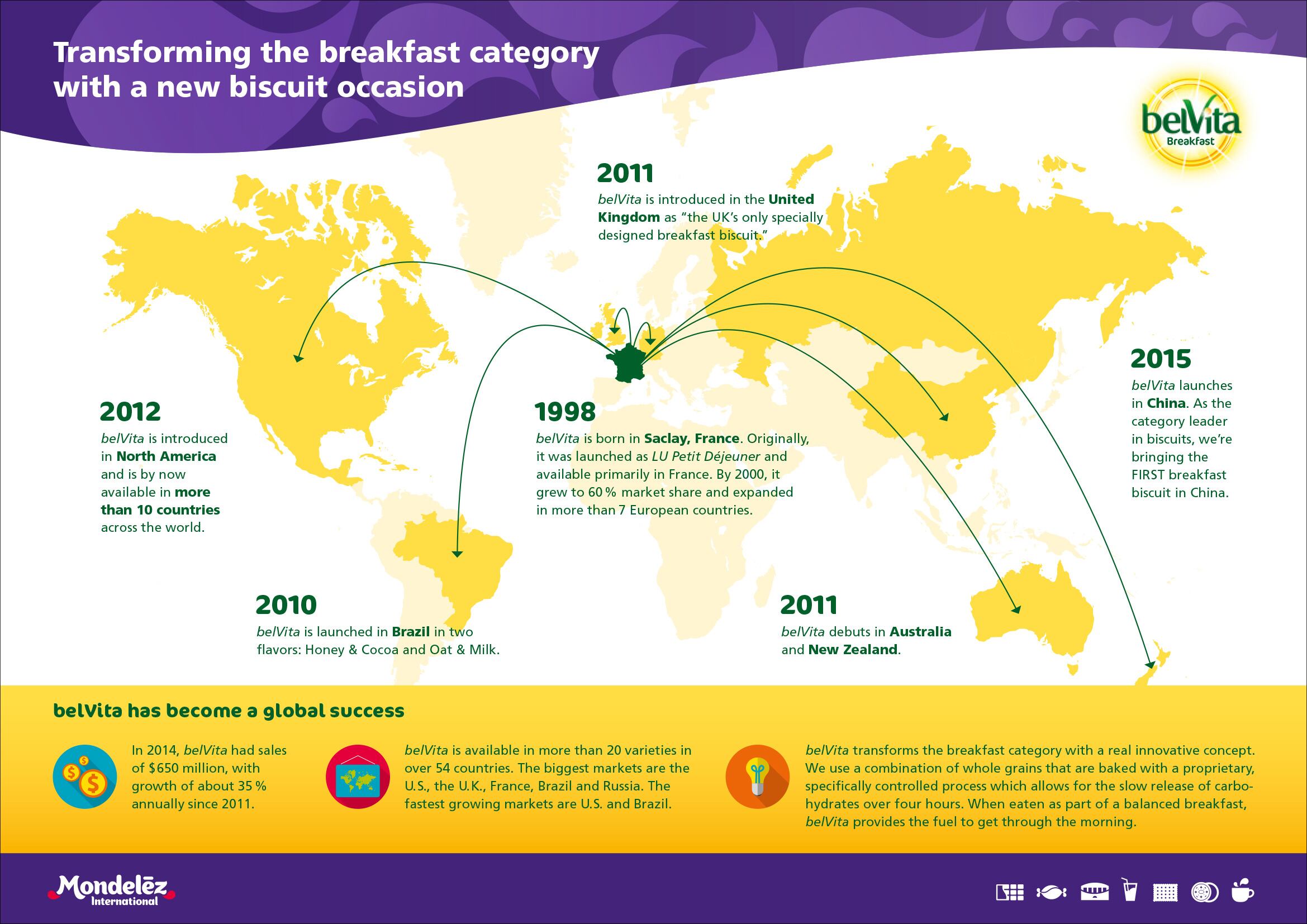After ballooning to 54 countries in five years, Mondelēz expects even bigger growth for its belVita product in the Chinese market.
Mondelēz touts belVita as one of its “most successful innovation platforms,” as it has seen an extremely quick ascent from its 2010 start in France to its huge expansion to $600m in revenue in 2014.
Bringing healthy snack bars to China
Mondelēz already has great standing in the Chinese biscuit market, as the company has seen success with Oreo, Chips Ahoy! And TUC, claiming it is the No. 1 biscuit maker in China right now. According to Euromonitor, the company held 14% of the country’s biscuit market share in 2014, making it the market leader.
However, the company has lost a percentage point in value share from 2012 to 2014 according to Euromonitor’s 2015 Biscuits in China report. This is partially due to the poor performance of Oreo, but another reason is the consumer shift to “healthier options” such as savory biscuits and crackers, or even more indulgent chocolate coated biscuits.

BelVita’s launch may mean making up lost ground in this market, as it is a new, healthier option in the Chinese market. Currently, China does not have a breakfast biscuit like this, the company claims. Stephen Maher, President of Mondelēz China, said the multinational wants to make sure this product is relevant to consumers who regularly consider health and wellness.
Nutrition stats
BelVita breakfast biscuits, which will be coming to China with milk & cereal, nuts & honey and mixed berry as its launch flavors, contain at least 50% wholegrains, the company said. It touts a minimum of 55% of energy from available carbohydrates in each bar, as well as at least 3g of fiber per each 100g serving.
“That's why we're bringing belVita, an entirely new global category, to China," he said "As more Chinese are shifting to modern breakfast options, we believe belVita breakfast biscuits offer a compelling benefit — nutrition, taste and convenience, delivering vitality throughout the morning."
Interest in health leads to belVita opportunity
According to Mark Clouse, Mondelēz executive vice president and chief growth officer, consumers in both mature markets and developing markets like China re looking for more healthy and nutritious foods.
"We're tapping into this trend and are determined to become the global leader in well-being snacks,” he said. “Our goal is to have 50% of our portfolio in the well-being space by 2020, up from more than a third of total revenue today."
Euromonitor’s report said consumers are becoming more health conscious while also buying more biscuits. Retail sales values of biscuits rose by 4% in 2014 across the country.
This growth has been down from the previous year, the report said, due to “consumers becoming less willing to eat biscuits with high calorie and sugar levels”.
Over the next year, the biscuit market in China is expected to grow 4%, a slower rate than the previous period’s 7% yearly growth. Euromonitor said the increasing competition of the biscuits market may be a reason for this; however, belVita may be a deus ex machina in a market clamoring for a greater number of health and wellness products.
